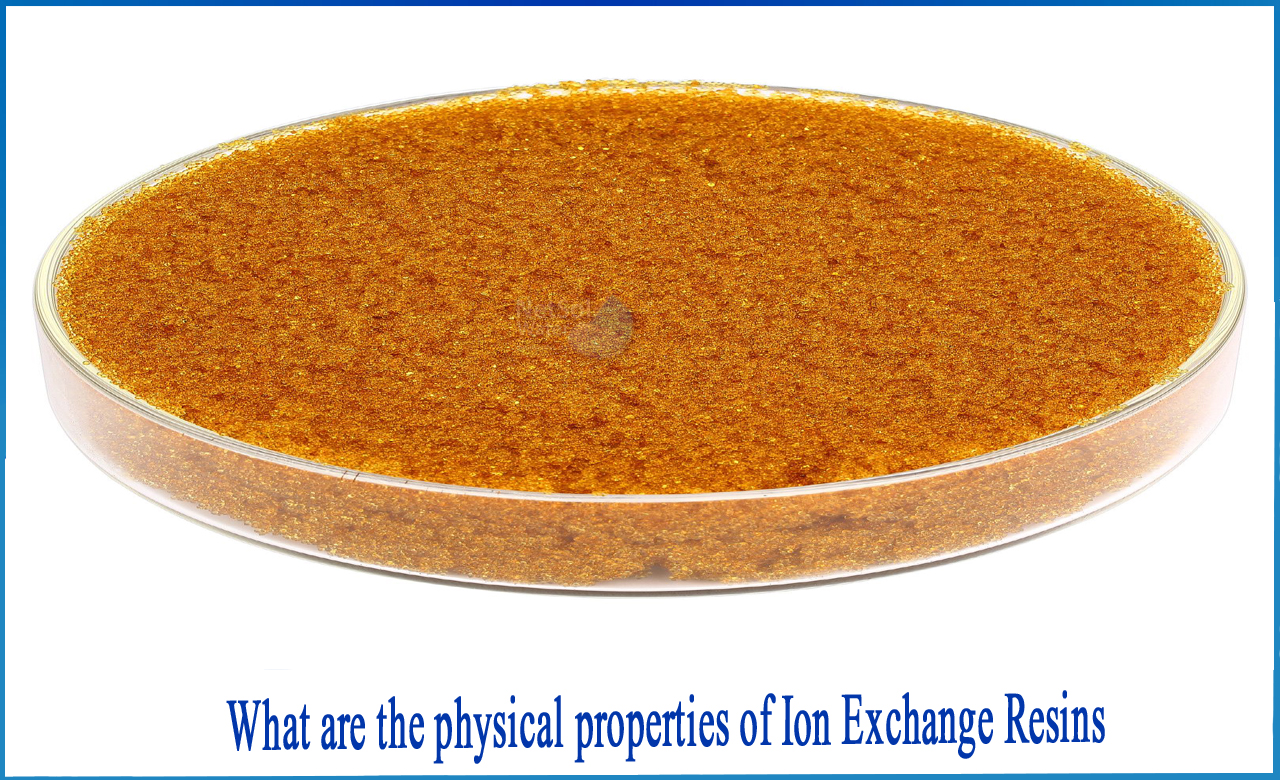What are the physical properties of Ion exchange resins?
Ion exchange resin's particle size and associated physical parameters have a significant impact on its work and performance.
(1) Particle size of resin
Ion exchange resins are often formed into little beads, and the size of the beads is also significant. The resin particles are finer, the reaction speed is faster, but the fine particles' resistance to the passage of the liquid is greater, necessitating a higher working pressure; this effect is amplified by the concentrated sugar liquid's high viscosity. As a result, the resin particle size should be correctly chosen. If the resin particle size is less than 0.2mm (about 70 mesh), it will greatly increase the fluid's resistance to pass, lowering the flow rate.
Wet sieving is commonly used to determine the size of resin particles. The resin is sieved once it has entirely absorbed and swollen, and the residual quantity is gathered on the 20, 30, 40, 50mesh screen, through which 90 percent of the particles can pass. The "effective particle size" of the resin is measured by the mesh diameter. Most popular resin products have effective particle sizes of 0.4 to 0.6 mm.
The homogeneity coefficient indicates whether the resin particles are homogeneous. On the coordinate chart of the "effective particle size" of the resin, it is the ratio of the corresponding sieve hole diameter to the effective particle size by taking the cumulative retained quantity of 40% particles.
(2) Density of resin
True density refers to the density of the resin when it is completely dry. The apparent density is defined as the weight of wet resin per unit volume (including the spacing between particles). The degree of crosslinking and the type of the exchange group determine the resin's density. A resin with a high degree of crosslinking has a higher density than a weak acid or weak basic resin, while a macroporous resin has a lower density than a resin with a weak acid or weak basic resin.
The real density of styrene-based gel-type strong acid cation resin is 1.26g/mL, while the apparent density is 0.85g/mL; the true density of acrylic gel-type weak acid cation resin is 1.19g/mL, while the apparent density is 0.75g/mL.
(3) Resin solubility
It's best if the ion exchange resin is insoluble. The compounds incorporated in the resin synthesis process with a low degree of polymerization, as well as the substances created by the degradation of the resin, will dissolve away during operation. Resins with more active groups and less cross-linking have a higher tendency to disintegrate.
(4) Expansion
When ion exchange resin comes into touch with water, it has a significant number of hydrophilic groups, which cause it to expand. When the ions in the resin change, such as the cationic resin changing from H+ to Na+ and the anionic resin changing from Cl- to OH-, both expand owing to the increase in ion diameter, increasing the resin volume.
A resin with a low degree of crosslinking has a higher degree of expansion in general. The swelling degree of the resin must be addressed while constructing the ion exchange device in order to adjust to the resin volume change produced by ion conversion in the resin during manufacturing.
(5) Durability
During usage, the resin particles undergo changes such as transfer, friction, expansion and contraction, and there will be some loss and fracture over a long period of time, therefore the resin must have a greater mechanical strength and wear resistance. In general, resins with a low degree of cross-linking are more readily broken, but the uniformity and strength of the cross-linked structure dictate the resin's longevity. With a larger degree of cross-linking, such as macroporous resin, the structure is robust and can sustain repeated regeneration.
How can we assist?
Professionals in the water quality business can provide more extensive assistance and specialized recommendations when it comes to selecting the proper water treatment for residential or industrial water softening. Netsol Water products and solutions can provide the water your plant requires at every stage!
Our professionals will check the customer's location first, then explain the available options and thus allow you to select what is best for your property. You can always find useful information by liking and following us on YouTube and LinkedIn.
For further inquiries or product-purchase-related questions, give us a call at +91-9650608473 or email at enquiry@netsolwater.com.



